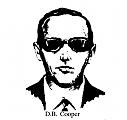Lessons From a Lacrosse Field Echo From West Point to Afghanistan, The New York Times, by Peter Applebome. The New York Times, May 19, 2010.
I played lacrosse in high school and enjoy following the college game. West Point's double-overtime victory against No. 2 Syracuse last Sunday was the biggest upset in tournament history. Army had a terrible start to the season, but ended up beating the Naval Academy, who usually crushes them, twice this season. They play Cornell this Sunday in the quarterfinals, should be on one of the ESPN channels.There is sports and there is real life. Sometimes they’re on the same page, sometimes they’re on separate planets, and sometimes there’s a little of both, like the picture of the Apache helicopter on the wall and the Lady Gaga song pouring out of the locker room at the Truxtun Lacrosse Center at the United States Military Academy.
So you can find your own message in the “Hoosiers” on the Hudson story that played out Sunday when an Army team that was given zero chance of winning beat the two-time defending national champion, Syracuse, in the first round of the N.C.A.A. tournament.
The origins of modern lacrosse go back to the Native Americans who used the game to train young men for combat or to settle disputes. Unlike the modern the game, the Native game would sometimes be played for days by thousands of players on a field where the goals could be miles apart. The Iroquois called the game Tewaarathon, which means "little brother of war".The conditioning, discipline, and focus on detail, teamwork and leadership helped Army do more with less, the coaches and players say. And Tyler Oates, a senior who plans to attend Airborne and Ranger training before heading, he assumes, to Afghanistan, said West Point’s training for war was just as applicable to sports.
“We never go on the field saying, ‘We’re going to give them a heck of a fight,’ or ‘We’re going to play our best,’ ” he said, adding: “You’re not going to go into Afghanistan saying ‘I hope I do all right.’ That’s life or death, not win or lose, but what makes you think the way you approach a lacrosse game should be different than the way you approach a training exercise or when you actually go to war?”







Bookmarks